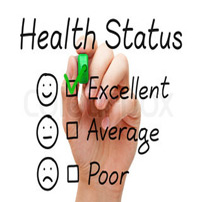Study Finds Link Between Bad Work Conditions and Poor Health
July 20, 2017 According to data collected in a new study by the National Institute for Occupational Safety and Health (NIOSH), there is a strong link between unsatisfactory work conditions and poor health. The study found that participants were more likely to report that they suffered from health problems if they were facing problems or stressors in their workplaces.
According to data collected in a new study by the National Institute for Occupational Safety and Health (NIOSH), there is a strong link between unsatisfactory work conditions and poor health. The study found that participants were more likely to report that they suffered from health problems if they were facing problems or stressors in their workplaces.
The study included nearly 11,000 adults, in which they responded to questions regarding unpaid sick leave, concerns of unemployment, workplace bullying and struggling to juggle work and family. After answering questions about workplace psychosocial factors, the respondents rated their health on a scale of poor-to-excellent. NIOSH concluded that there was a “significant link” between how participants rated their overall physical health and how affected by worrisome job factors they were.
Self-rated health questionnaires typically ask a respondent if their health is excellent, very good, good, fair or poor. Although it is a subjective method of obtaining a person’s assessment of their own health, it is generally accepted as a reliable indicator for mortality rates as well as general health problems and concerns.
NIOSH determined that because work can influence an individual’s health, that it manifests in a variety of ways. Overall employment conditions, such as a lack of job security or the inability to take time off without the fear of financial burden can result in a person having medical issues, such as anxiety or sleeping problems. Workers who feared unemployment reported health problems 43% more than those who reported having job security. The study revealed that workers who had unpaid sick leave were 35% more likely to report health issues, most likely as a result from being less likely to take time off when ill.
Juggling family life and overwhelming work conditions resulted in a 23% increased chance of health problems. Out of all the psychosocial factors, workplace bullying had the most staggering result: people who were harassed in the workplace were a whopping 82% more likely to report poor health conditions. NIOSH also concluded that people who worked longer hours or were in a line of employment where they were exposed to hazardous materials were at a greater likelihood of self-identifying their health problems.
Although participants in the study were from a diverse group of employment fields, the data found that those in business operation positions, such as human resource professionals or marketing were also more likely to report having poor or fair health. This could be because employees in business operation positions are more likely to have unpaid sick leave or job instability, although the exact cause is not yet fully understood. Overall, people in business operation positions were 85% more likely to report having fair or poor health than those in other professional fields.
One of the study’s lead authors believes that this data is the first to show a link between how people self-rate their health and psychosocial work factors such as bullying, fear of unemployment, family stress and unpaid sick leave. The data was published in the American Journal of Preventive Medicine, and encouraged wellness professionals along with public health employees to utilize the information in order to develop worker wellbeing interventions.
Because the study shows that psychosocial factors like bullying, unpaid sick leave, job instability and a difficulty combining work and family can be harmful to a person’s health, workplace programs that aim to increase worker wellbeing could be extremely beneficial. Providing a reasonable amount of paid sick leave time, creating anti-bullying initiatives, having employees work fair hours and giving job security to hardworking individuals are all ways that employers could help increase worker wellbeing and even combat poor self-health ratings.
Philadelphia Personal Injury Lawyers at Galfand Berger, LLP Advocate for Injured Victims
If you or a loved one has been injured in the workplace, our personal injury lawyers in Philadelphia are happy to answer your questions and review your case for free. At Galfand Berger, our offices are located in Bethlehem, Lancaster, Philadelphia, and Reading and we serve clients throughout Pennsylvania and New Jersey. To schedule a consultation, call us at 800-222-8792 or complete our online contact form.
 Google Screened
Google Screened
